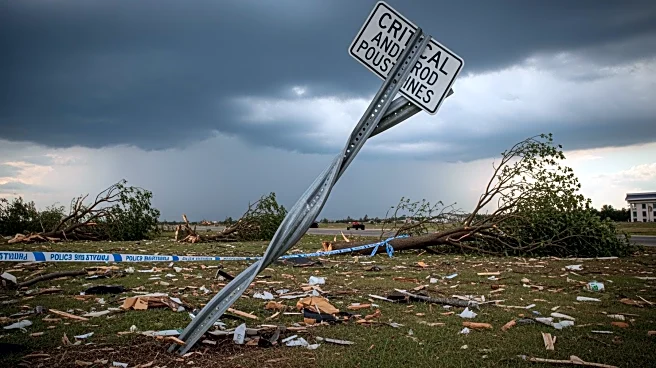What's Happening?
A powerful tornado has struck the state of Paraná in southern Brazil, resulting in the deaths of at least six individuals and injuring over 400 others. The tornado, described by state governor Ratinho Júnior as an 'unprecedented catastrophe,' caused extensive
damage in the town of Rio Bonito do Iguaçu, where winds reached speeds of up to 250 km/h (155 mph). Approximately 90% of the town's residences and commercial buildings were affected, with many structures, including silos and gas stations, collapsing. The tornado also impacted the nearby city of Guarapuava, where one fatality was reported. Rescue operations are ongoing, with authorities still gathering information on the number of homeless and displaced individuals.
Why It's Important?
The tornado's impact on southern Brazil highlights the vulnerability of the region to extreme weather events, which can have devastating effects on local communities and infrastructure. The declaration of a 'public calamity' in Paraná allows the government to mobilize resources and seek federal assistance, underscoring the severity of the situation. The event also raises concerns about the preparedness of regions prone to such natural disasters and the need for effective emergency response systems. The broader implications include potential economic disruptions due to damage to homes and businesses, as well as the strain on local and federal resources in managing the aftermath.
What's Next?
As the tornado moves across the sea, it is expected to affect other Brazilian states, including Rio Grande do Sul, Santa Catarina, São Paulo, Rio de Janeiro, and Espírito Santo, with wind gusts potentially exceeding 100 km/h. Authorities are advising the public to remain vigilant and avoid open areas due to the risk of falling structures and power lines. The ongoing rescue and recovery efforts will likely continue as more information becomes available about the affected populations. The government may also need to implement long-term recovery plans to rebuild the damaged infrastructure and support displaced residents.


















